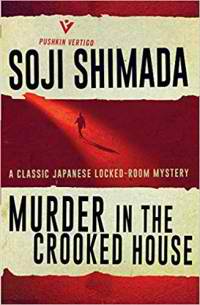The Eighth Sister by Robert Dugoni
 Friday, June 28, 2019 at 9:11AM
Friday, June 28, 2019 at 9:11AM 
Published by Thomas & Mercer April 9, 2019
The Eighth Sister starts as a spy novel and turns into a lawyer novel. Two of my favorite genres rolled into a single book. I’m happy to report that the result will appeal to fans of both espionage thrillers and courtroom thrillers.
Seven Russian women, known as the Seven Sisters, were trained as American agents during the Cold War. Now that Putin is in charge, three have been killed. Former CIA agent Charles Jenkins, who runs a security service with cash flow problems, is recruited to travel to Moscow and identify the eighth sister, a Russian operative who is trying to ferret out the identities of the remaining four. Once Jenkins identifies her, someone else will kill her.
Jenkins is recruited by the man who used to be his station chief in Mexico City. For that reason, Jenkins believes that the CIA has authorized his mission. I suspect that most fans of spy fiction will wonder from the start whether that is true, and will wonder why Jenkins doesn’t do more to confirm that he is actually serving his government. But he’s getting paid handsomely, so maybe he doesn’t care.
Jenkins has a 9-year-old son at home and another baby on the way. He is 64 years old, 6’5” and black, so he stands out a bit in Moscow. The plot includes some good chase scenes in Russia when the mission goes south. It also introduces collateral characters who are self-sacrificing, adding a feel-good element to the story that never seems manipulative.
Every good spy novel contains at least one double-cross while challenging the reader to guess whether certain characters are good guys or bad guys. After the double-cross occurs, Jenkins is accused of being a traitor, a charge that never sits well with jurors or hanging judges.
The story offers a realistic view of the lengths to which the federal government will go to poison the public’s mind when it makes arrests, doing everything it can — from perp walks to press releases — to make a suspect guilty in the public mind until proven innocent. And convincing witnesses to tell the government’s version of the truth, even if it isn’t objectively true, is a specialty of federal prosecutors.
Jenkins is defended by David Sloane, a seasoned lawyer who has appeared in other Robert Dugoni novels. The plot depends on the government bringing Jenkins to trial while withholding evidence of his innocence — something no ethical prosecutor would do, but not every federal prosecutor is ethical. In our imperfect world, however, prosecutors (and particularly federal prosecutors) know their odds of being disciplined for ethical lapses are virtually nonexistent. I also found it doubtful that a majority of the Ninth Circuit would go along with a charade that prevents a defendant from presenting compelling evidence of innocence (some other circuits, yes, but the Constitution is still in effect on the West Coast). Still, it is easy to roll with the court’s ruling to keep the story moving.
The courtroom scenes generate the kind of drama that legal thrillers should create. The Eighth Sister effectively bridges the spy and legal genres, telling two very different stories but telling them both well. I don’t recall another novel that combines the genres in quite this way, so bravo to Dugoni for doing something new and clever — and for doing it so ably.
RECOMMENDED
 TChris |
TChris |  Post a Comment |
Post a Comment |  Robert Dugoni,
Robert Dugoni,  spy in
spy in  Thriller
Thriller 


